Intro
Learn about high blood pressure, its symptoms, and causes. Understand hypertension, blood pressure readings, and cardiovascular risks to manage your health effectively.
High blood pressure, also known as hypertension, is a common health condition that affects millions of people worldwide. It is a condition where the force of blood against the walls of the arteries is too high, which can lead to serious health problems, such as heart disease, stroke, and kidney disease. High blood pressure is often referred to as the "silent killer" because it can cause damage to the body without any noticeable symptoms.
The importance of understanding high blood pressure cannot be overstated. It is a major risk factor for many serious health conditions, and if left untreated, it can lead to life-threatening complications. In fact, according to the World Health Organization (WHO), high blood pressure is the leading cause of death and disability worldwide, accounting for over 12 million deaths per year. Furthermore, high blood pressure is a major risk factor for cardiovascular disease, which is the leading cause of death globally.
Despite its importance, many people are not aware of the risks associated with high blood pressure. In fact, a recent survey found that over 30% of people with high blood pressure are not aware that they have the condition. This lack of awareness can be attributed to the fact that high blood pressure often does not have any noticeable symptoms, making it difficult for people to detect. However, with the right knowledge and understanding, people can take steps to prevent and manage high blood pressure, reducing their risk of developing serious health problems.
What Causes High Blood Pressure
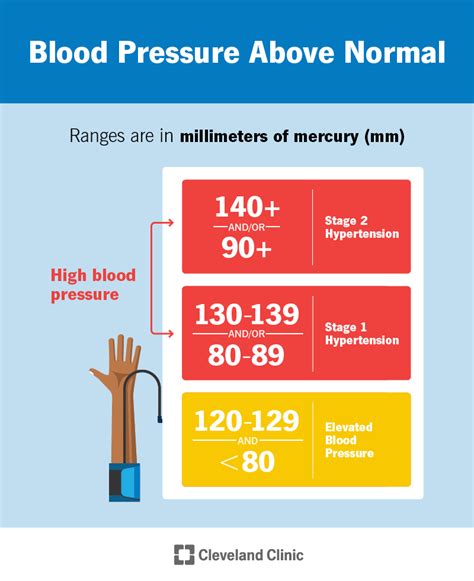
High blood pressure is a complex condition that can be caused by a combination of genetic, environmental, and lifestyle factors. Some of the main causes of high blood pressure include a family history of the condition, age, obesity, physical inactivity, smoking, and a diet high in salt and sugar. Additionally, certain medical conditions, such as kidney disease, sleep apnea, and adrenal gland tumors, can also increase the risk of developing high blood pressure.
Genetic Factors
Genetic factors can play a significant role in the development of high blood pressure. People who have a family history of the condition are more likely to develop it themselves. In fact, studies have shown that people who have a first-degree relative (such as a parent or sibling) with high blood pressure are more likely to develop the condition.Environmental Factors
Environmental factors, such as diet and lifestyle, can also contribute to the development of high blood pressure. A diet high in salt and sugar can increase blood pressure, as can physical inactivity and smoking. Additionally, stress and anxiety can also contribute to high blood pressure, as they can cause the body to release hormones that increase blood pressure.Symptoms of High Blood Pressure
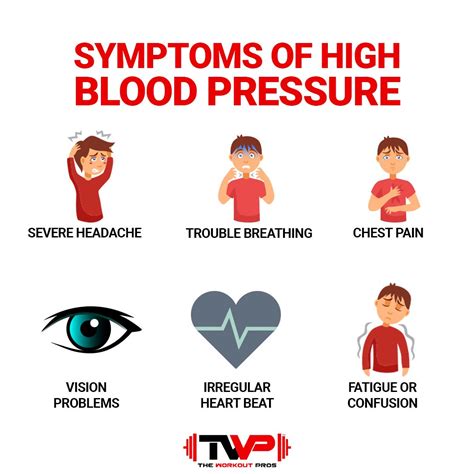
High blood pressure often does not have any noticeable symptoms, which is why it is often referred to as the "silent killer." However, some people may experience symptoms such as headaches, dizziness, and nosebleeds. Additionally, people with high blood pressure may also experience symptoms such as fatigue, confusion, and vision changes.
Severe Symptoms
In severe cases of high blood pressure, people may experience more serious symptoms, such as chest pain, shortness of breath, and seizures. These symptoms require immediate medical attention, as they can be a sign of a life-threatening condition.Diagnosing High Blood Pressure
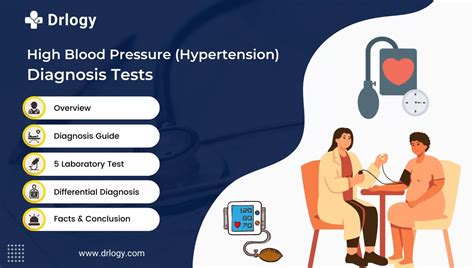
Diagnosing high blood pressure typically involves a physical exam and a review of medical history. A healthcare provider will use a device called a sphygmomanometer to measure blood pressure, which is typically expressed as two numbers: systolic and diastolic. The systolic number represents the pressure in the arteries when the heart beats, while the diastolic number represents the pressure in the arteries between beats.
Stages of High Blood Pressure
There are several stages of high blood pressure, including:- Elevated blood pressure: 120-129/80 mmHg
- Stage 1 hypertension: 130-139/80-89 mmHg
- Stage 2 hypertension: 140 or higher/90 or higher mmHg
Treatment Options for High Blood Pressure
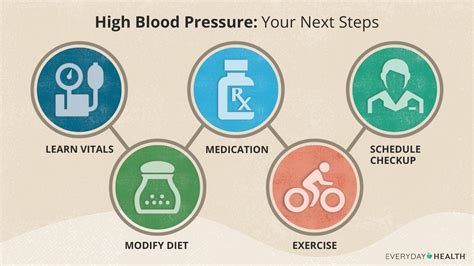
Treatment for high blood pressure typically involves a combination of lifestyle changes and medication. Lifestyle changes may include:
- Eating a healthy diet that is low in salt and sugar
- Getting regular exercise, such as walking or jogging
- Quitting smoking
- Reducing stress and anxiety
Medications for high blood pressure may include:
- Diuretics, which help remove excess fluid from the body
- Beta blockers, which slow the heart rate and reduce blood pressure
- ACE inhibitors, which relax blood vessels and reduce blood pressure
Lifestyle Changes
Making lifestyle changes can be an effective way to manage high blood pressure. Some tips for making lifestyle changes include:- Keeping a food diary to track salt and sugar intake
- Finding healthy ways to manage stress and anxiety, such as meditation or yoga
- Getting regular exercise, such as walking or jogging
- Quitting smoking and avoiding secondhand smoke
Complications of High Blood Pressure
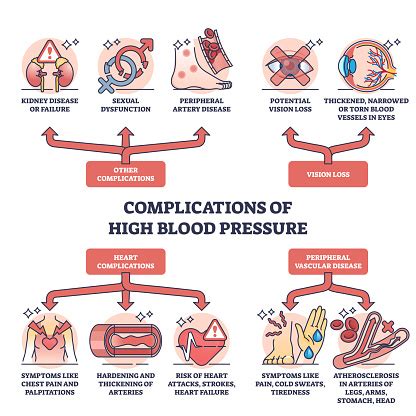
High blood pressure can lead to a number of serious complications, including:
- Heart disease: High blood pressure can increase the risk of heart disease, which is the leading cause of death globally.
- Stroke: High blood pressure can increase the risk of stroke, which is a leading cause of death and disability worldwide.
- Kidney disease: High blood pressure can increase the risk of kidney disease, which can lead to kidney failure and the need for dialysis.
Reducing the Risk of Complications
Reducing the risk of complications from high blood pressure requires a combination of lifestyle changes and medication. Some tips for reducing the risk of complications include:- Getting regular check-ups with a healthcare provider
- Taking medication as directed
- Making lifestyle changes, such as eating a healthy diet and getting regular exercise
Preventing High Blood Pressure
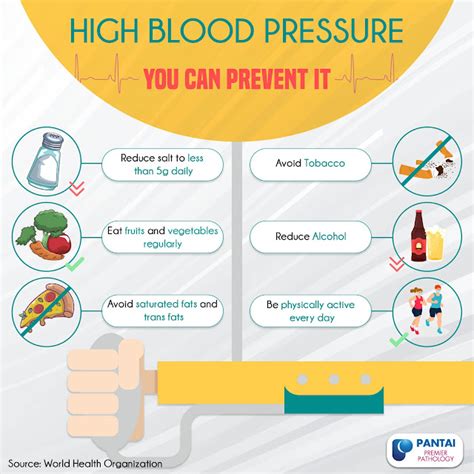
Preventing high blood pressure requires a combination of lifestyle changes and awareness of risk factors. Some tips for preventing high blood pressure include:
- Eating a healthy diet that is low in salt and sugar
- Getting regular exercise, such as walking or jogging
- Quitting smoking
- Reducing stress and anxiety
Awareness of Risk Factors
Being aware of risk factors for high blood pressure can help people take steps to prevent the condition. Some risk factors for high blood pressure include:- Family history of the condition
- Age
- Obesity
- Physical inactivity
- Smoking
What is the normal range for blood pressure?
+Normal blood pressure is typically defined as a systolic pressure of less than 120 mmHg and a diastolic pressure of less than 80 mmHg.
Can high blood pressure be cured?
+While high blood pressure cannot be cured, it can be managed with lifestyle changes and medication. With proper treatment, people with high blood pressure can reduce their risk of complications and improve their overall health.
What are the symptoms of high blood pressure?
+High blood pressure often does not have any noticeable symptoms, but some people may experience symptoms such as headaches, dizziness, and nosebleeds. In severe cases, people may experience more serious symptoms, such as chest pain, shortness of breath, and seizures.
In conclusion, high blood pressure is a serious health condition that requires attention and action. By understanding the causes, symptoms, and treatment options for high blood pressure, people can take steps to prevent and manage the condition. We invite you to share your thoughts and experiences with high blood pressure in the comments below. Additionally, if you found this article informative, please share it with your friends and family to help raise awareness about the importance of managing high blood pressure.
